Gifted. Troubled. Champion.
These words might not wholly define the great Bobby Fischer, but to a major extent they are the pillars of his personality. One of the greatest minds to have ever played the sport of chess, Fischer hardly ever acted as an ideal human being. He wasn’t the easiest people to get along with, but then how can you deny the genius of a man who invited the fear of his seemingly impenetrable Soviet opponents. It might not be apparent to most, but chess is a violent sport. Blood isn’t spilled, but pieces get hacked at an uncomfortable pace at the highest level.
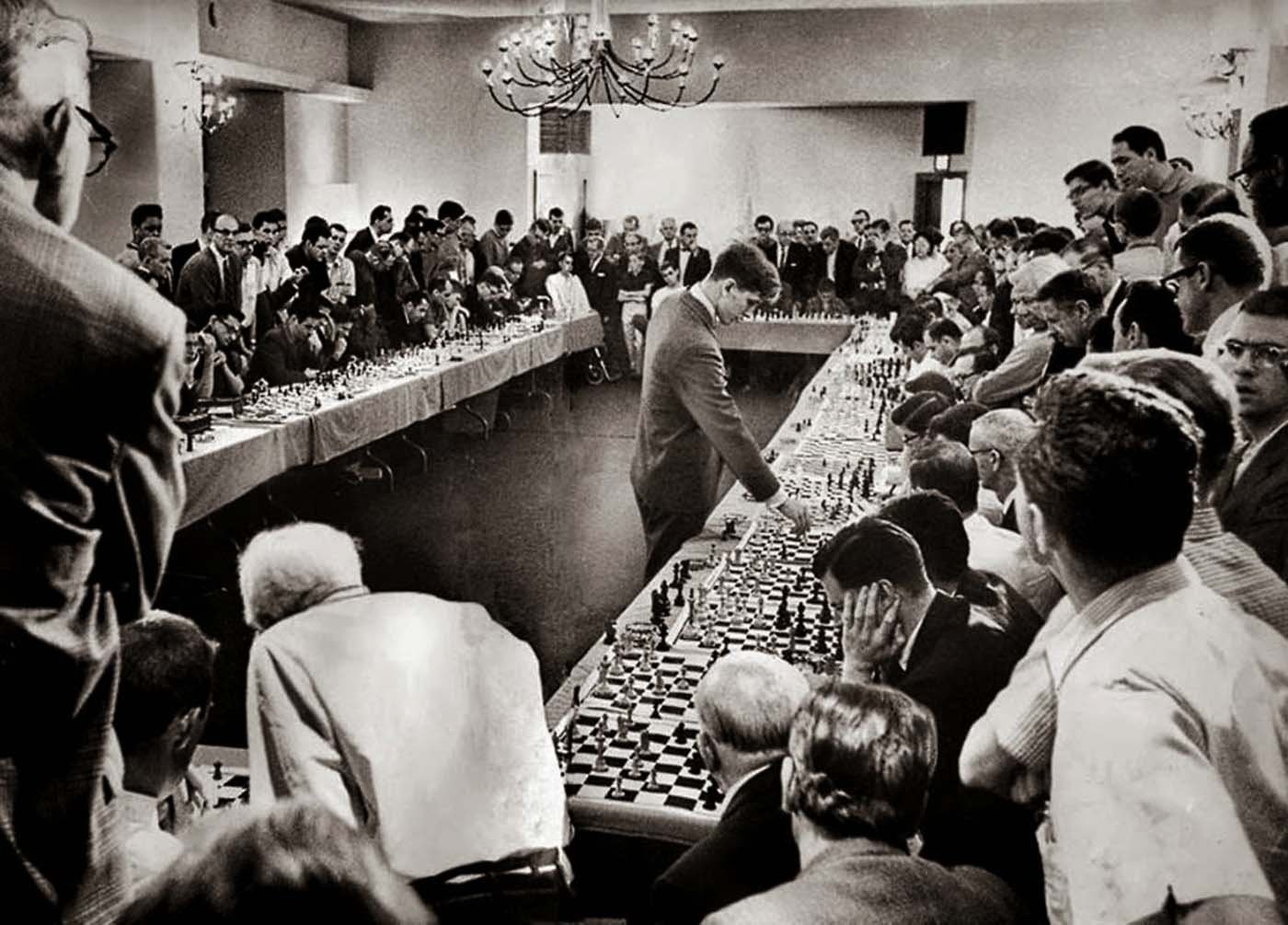
Bobby grew up with his Jewish mother Regina in Brooklyn, New York. While she studied for her Master’s degree in Nursing, Bobby and his half-sister Joan found interest in chess. Not able to find anyone his age to play with, Fischer began spending more and more time alone and playing against himself. An 8-year-old Fischer participated in an exhibition match with a former Scottish champion Master Max Pavey, in which he held on for a miraculous fifteen minutes before losing. Amongst the onlookers was Carmine Nigro, president of the Brooklyn Chess Club. Nigro went on to become Fischer’s first teacher in chess.
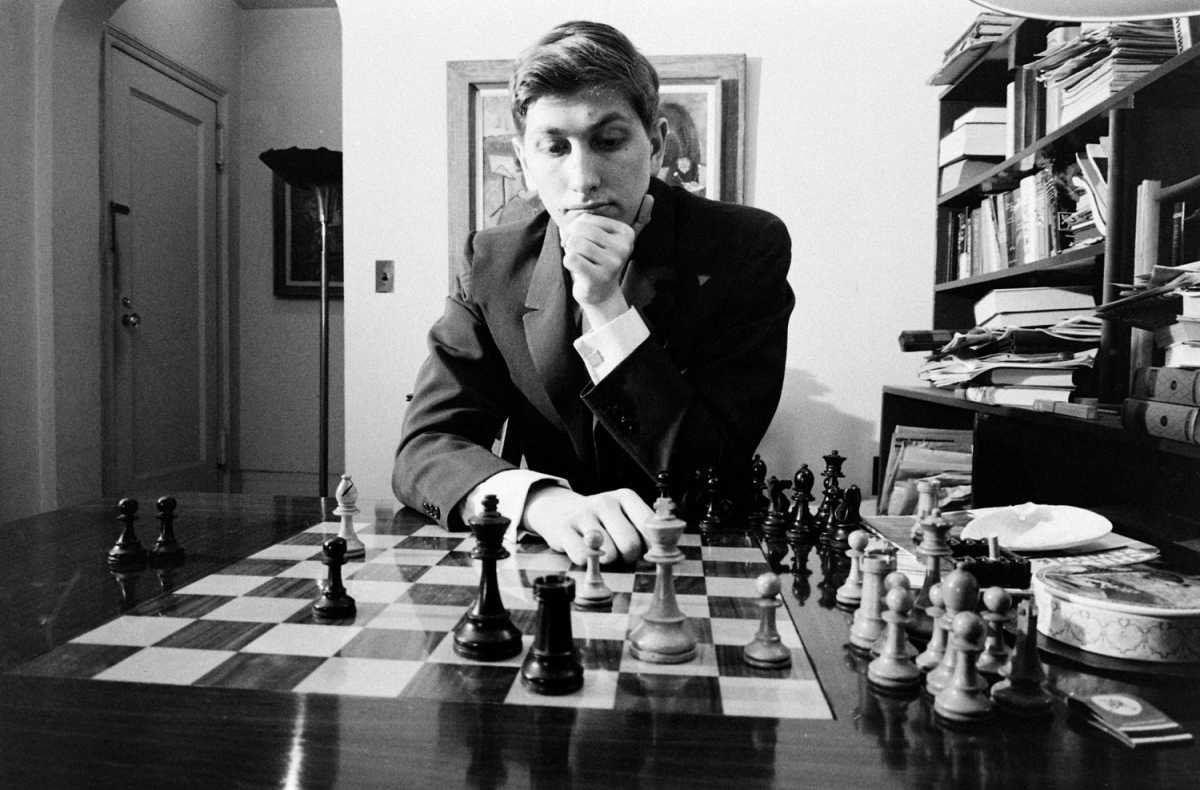
It was with Nigro’s help that Fischer went on to become the youngest ever Grandmaster at 15 years, 6 months and 1 day. Fischer, who was itching to play the Soviet Grandmasters, made a huge impression during his maiden visit to Moscow. Playing ‘blitz’ with some of the masters, Fischer showed little mercy crushing all his opponents. It is reported that Grandmaster Vladimir Alatortsev, who was beaten thrice by Fischer, said to his wife in admiration of Fischer’s aggressive tactics, “We have a future champion.”
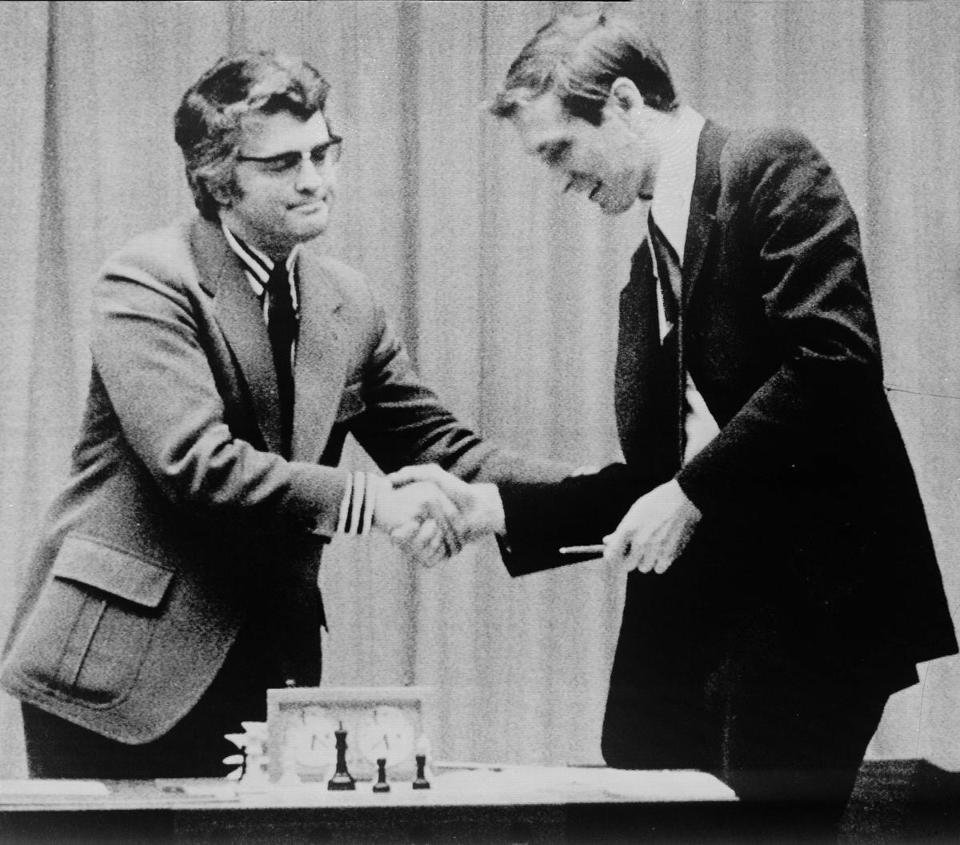
However, he ran himself into controversies more than once on his path to greatness. Right before the 1963 World Championships, Fischer alleged his Soviet counterparts of colluding among themselves to make it mathematically impossible for someone outside the Soviet Union to participate in the championships. The allegations were thought to be accurate, and Fischer went on to declare he would never participate in the candidate’s championship. In 1963-64, Fischer tipped to win his sixth US Championship, made a fitting statement by winning 11-0. Once again reminding audience all around the world, that he was in a league of his own.
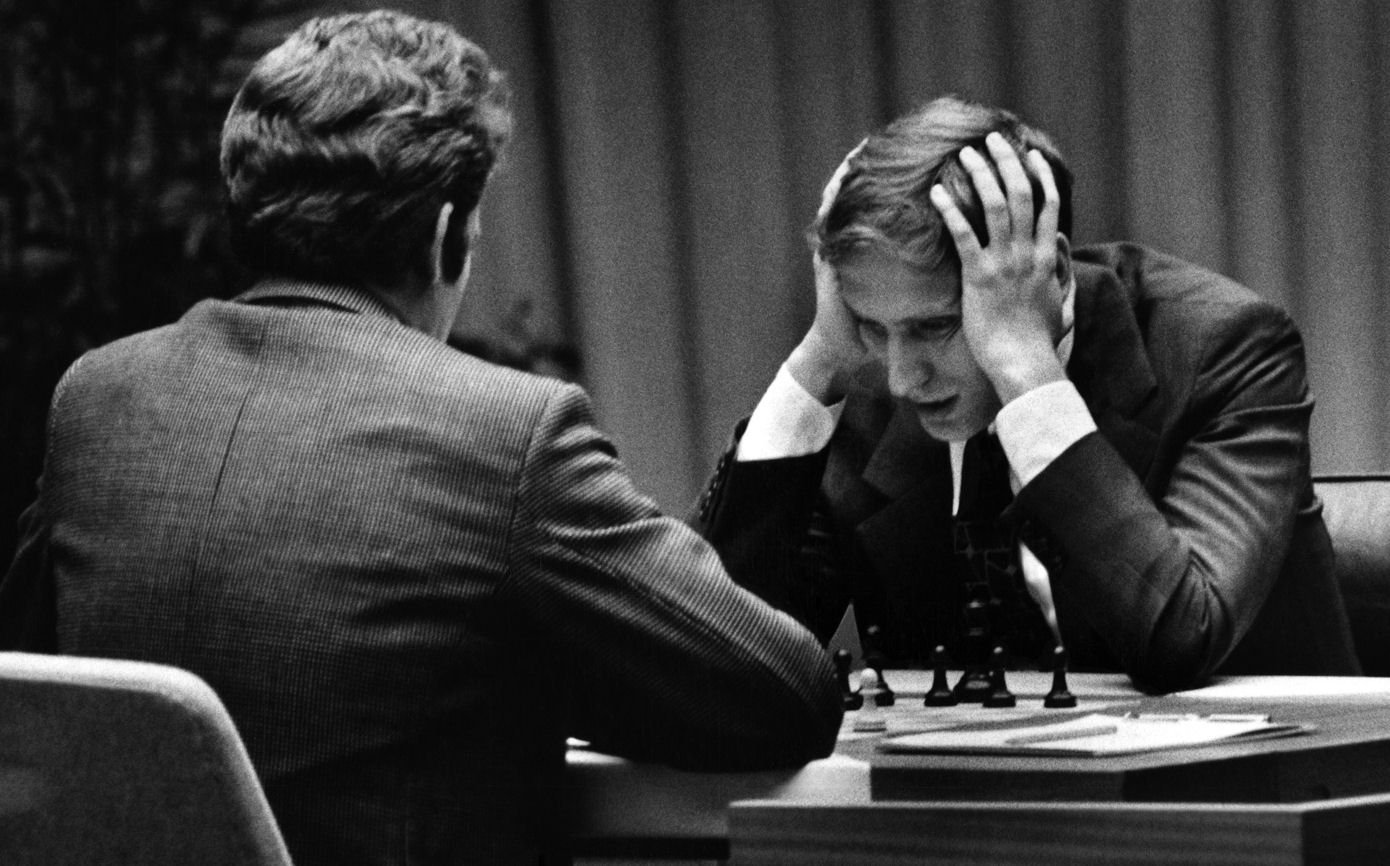
And the world collectively bowed down to him in the following years, as he would finally agree to play the 1972 World Championships against the numero uno chess player Boris Spassky. The championship began with Fischer trailing after his defeat in the first two games, after which he put forth a few special requests for the future games to take place. Spassky, refusing to win with a forfeit agreed to Fischer’s ridiculous demands including moving the games to a backroom instead of a stage with a live audience.
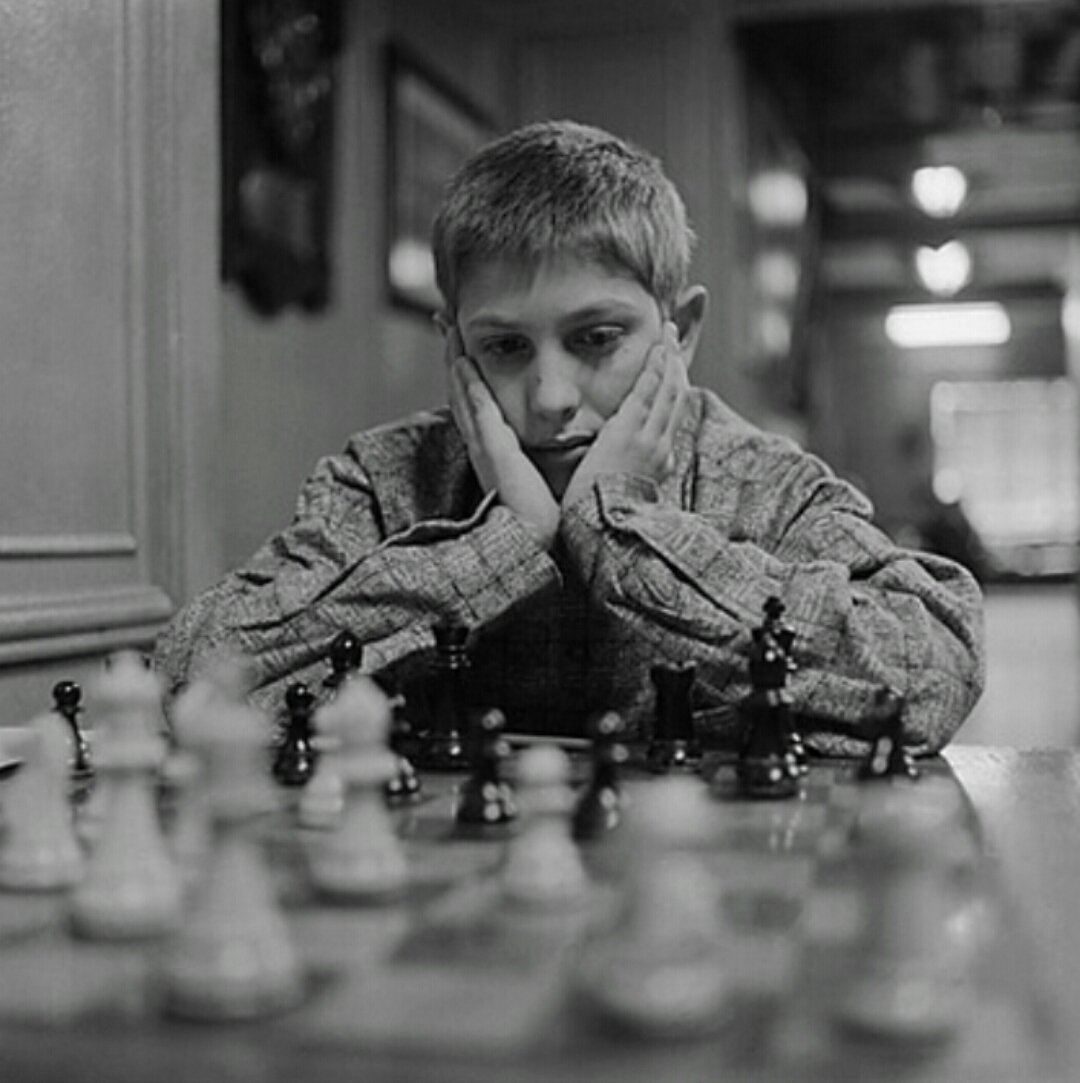
Accomplishing the unthinkable, Fischer came back from a 2-game deficit and beat Spassky 12 and half to 8 and half. The game is fondly called ‘the game of the century’ even as millions of Americans tuned in to watch it on TV. It served as a fitting metaphor for its times, which also happened to be the peak of the Cold War and where the CIA and the KGB were trying to outwit each other on every front. Even the chess board if possible. And Fischer’s win was widely considered as an edge for America over the Soviet Union.
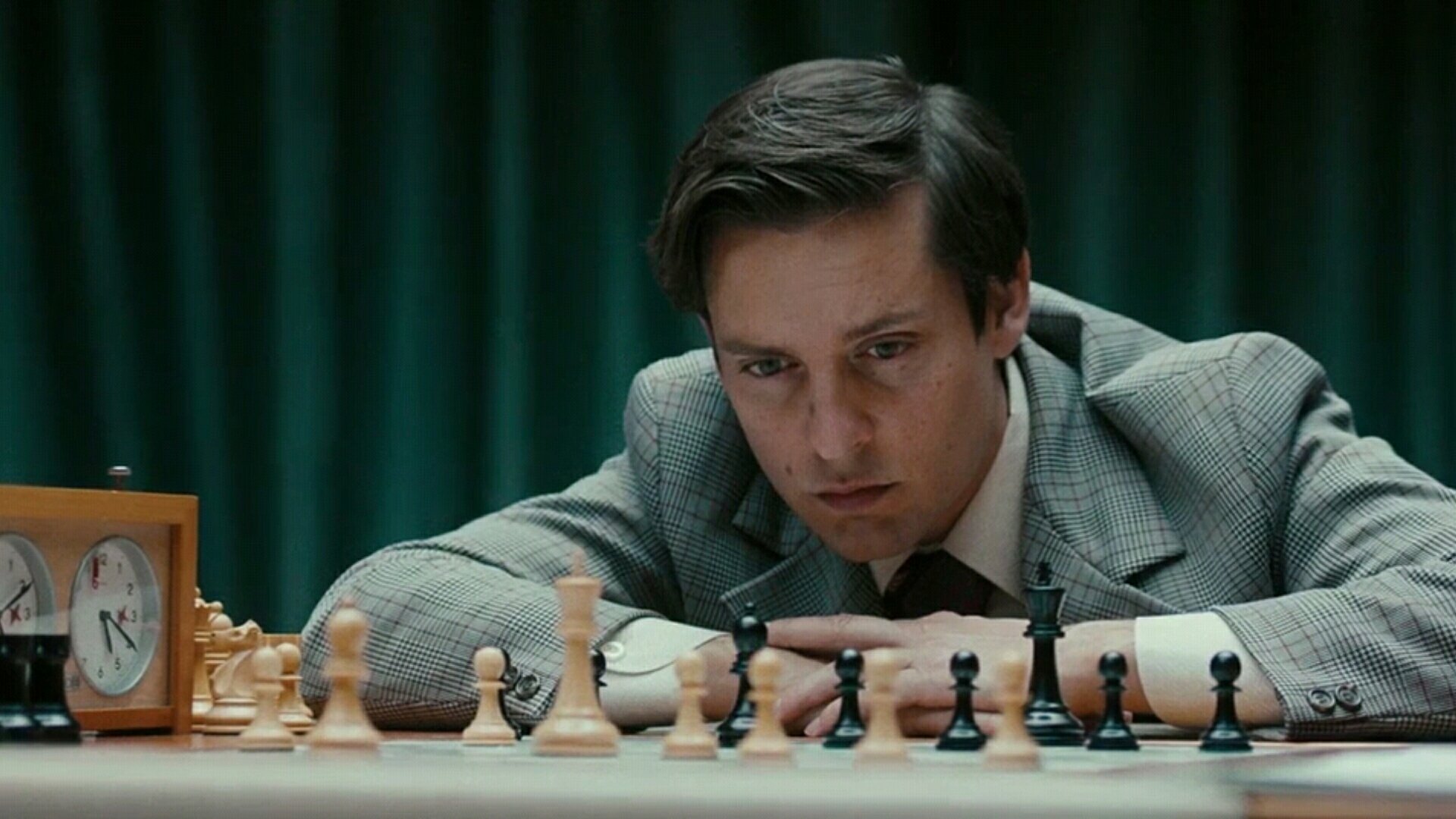
Being showered with endorsement deals on his return, Fischer chose to take up none of the offers. He also went on to forfeit his title after he made another list of bizarre demands against challenger Anatoly Karpov which didn’t get approved this time. Fischer also refused to play another competitive game in public for nearly two decades. He was even mistaken for a bank robber while he was out on a stroll in Pasadena, California. He alleged that the police kept him in custody for 2 days and beat him up, about which he wrote a 14-page pamphlet.
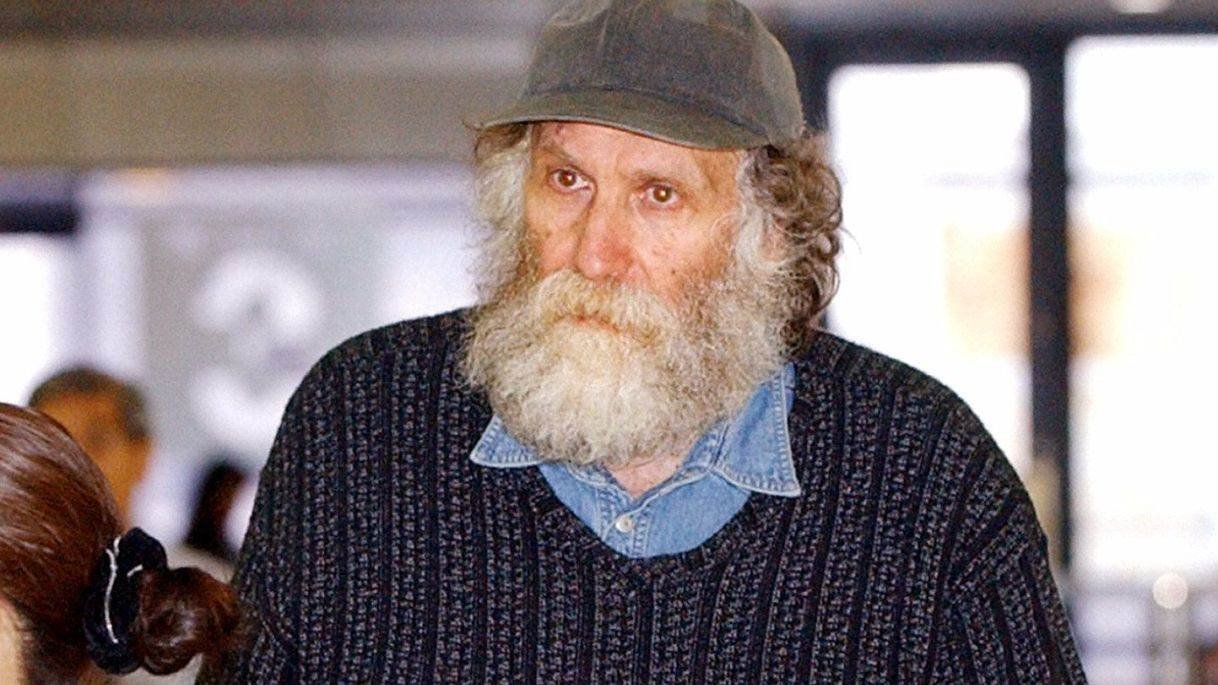
Fischer spent the later part of his life in relative obscurity. Being labelled a fugitive for participating in a match in Yugoslavia, Fischer lived in exile in countries including Hungary, Japan and finally Iceland. The former world champion was also known for his anti-semitic stance in spite of having a Jewish lineage himself. He is also reported to have said that he ‘glad’ about 9/11, since this would bring to light the horrors his country was committing in Palestine for many years. Even though he was never really formally diagnosed for any mental illnesses, he displayed ‘troubled behaviour’ on more than one occasion, which people even close to him couldn’t explain.
Bobby Fischer passed away in Reykjavik, Iceland in 2008. No one could possibly have understood the depths of this champion. And maybe in some cases, these ‘special people’ ought to be revered from a distance.

















